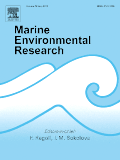
MARINE ENVIRONMENTAL RESEARCH
metrics 2024
Bridging Research and Environmental Stewardship
Introduction
Marine Environmental Research, published by Elsevier Science Ltd, is a premier journal in the field of aquatic science, oceanography, and environmental pollution, with an impressive 2023 Q1 ranking in multiple categories, including Aquatic Science and Oceanography. Established in 1978, this journal serves as a vital resource for researchers, professionals, and students dedicated to understanding marine ecosystems and the impacts of human activity on these environments. It fosters interdisciplinary dialogue, providing a platform for original research, reviews, and case studies that explore critical issues such as marine biodiversity, pollution, and ecosystem health. While the journal maintains a sophisticated peer-review process, it is committed to advancing knowledge without compromising rigorous academic standards. With its strong Scopus ranking, including significant positions in Aquatic Science and Oceanography, Marine Environmental Research continues to play an essential role in shaping the future of marine environmental research and conservation efforts globally.
Metrics 2024
 0.88
0.88 3.00
3.00 3.20
3.20 111
111Metrics History
Rank 2024
Scopus
IF (Web Of Science)
JCI (Web Of Science)
Quartile History
Similar Journals
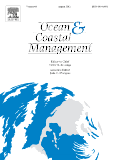
OCEAN & COASTAL MANAGEMENT
Elevating Insights in Marine Resource ManagementOCEAN & COASTAL MANAGEMENT is a premier journal dedicated to the multifaceted fields of oceanography, aquatic science, and coastal management. Published by ELSEVIER SCI LTD and located in the United Kingdom, this esteemed journal boasts a remarkable Q1 ranking in prestigious categories, including Aquatic Science and Oceanography, reflecting its influential contributions to the field since its inception in 1992. The journal is recognized for its high impact, boasting a commendable presence in Scopus rankings across related disciplines, with notable placements in the 94th percentile for Aquatic Science and 92nd percentile for Oceanography. Although it operates under a subscription model, OCEAN & COASTAL MANAGEMENT continues to serve as a vital resource for researchers, professionals, and students seeking to advance their understanding of coastal ecosystems and effective management strategies. Through rigorous peer-reviewed research, the journal aims to foster knowledge exchange and practical applications in policy-making and environmental stewardship, making it an essential read for anyone engaged in the preservation and sustainable use of oceanic resources.

THALASSAS
Unveiling the Secrets of the Sea for a Sustainable FutureTHALASSAS is a prominent academic journal specializing in the fields of Aquatic Science and Oceanography, published by Springer International Publishing AG. Established in 2005 and running through 2024, this journal serves as a vital platform for sharing groundbreaking research and innovative findings related to the marine environment and its ecosystems. With an ISSN of 0212-5919 and an E-ISSN of 2366-1674, THALASSAS is indexed in Scopus and currently holds a Q3 classification in both Aquatic Science and Oceanography for 2023, reflecting its relevance and contribution to these scientific disciplines. Although it does not follow an Open Access model, THALASSAS offers valuable insights for researchers, professionals, and students interested in sustainable ocean management and aquatic biodiversity. Its rigorous peer-review process ensures that published articles meet the highest standards of academic quality, fostering a deeper understanding of marine sciences and addressing critical issues facing aquatic systems today.

BULLETIN OF MARINE SCIENCE
Unveiling the secrets of the sea through science.BULLETIN OF MARINE SCIENCE, published by Rosenstiel School of Marine and Atmospheric Science, is a prominent journal dedicated to advancing the field of marine science through scholarly research and peer-reviewed articles. With an ISSN of 0007-4977 and an E-ISSN of 1553-6955, this journal has been contributing to significant scientific discourse since its inception in 1973. Covering a wide spectrum of topics in aquatic sciences and oceanography, it has maintained a respectable position in the academic community, as evidenced by its Q3 ranking in both categories for 2023. Although currently not an open-access journal, it provides essential access to groundbreaking research that informs marine conservation, ecological studies, and atmospheric sciences. Situated in the United States at 4600 Rickenbacker Causeway, Miami, FL 33149, the journal serves as a vital resource for researchers, professionals, and students seeking to engage with the latest findings in marine science and foster a deeper understanding of our oceans.
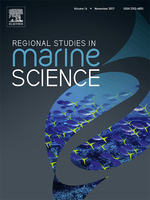
Regional Studies in Marine Science
Charting New Waters in Marine Ecosystem ResearchRegional Studies in Marine Science, published by Elsevier, is a leading academic journal dedicated to advancing the understanding of marine ecosystems and their regional dynamics since its inception in 2015. With an ISSN of 2352-4855, this journal is indexed in Scopus and has achieved impressive ranking quartiles, notably Q2 in categories like Animal Science and Zoology, and Ecology, showcasing its relevance and impact in these fields. As of 2023, it ranks in the 79th percentile for Animal Science and Zoology, reflecting its significant contribution to academic discourse. While the journal operates under a traditional access model, its rigorous peer-review process ensures the publication of high-quality research that is crucial for understanding ecological interactions and fostering sustainable practices within marine environments. Researchers, professionals, and students alike will find this journal an invaluable resource for the latest findings and advancements in marine science, as it strives to bridge the gap between research and practical application at regional and global levels.

AFRICAN JOURNAL OF MARINE SCIENCE
Fostering collaboration for a healthier marine environment.AFRICAN JOURNAL OF MARINE SCIENCE is a premier academic journal dedicated to advancing the field of aquatic sciences and ecological studies, published by Taylor & Francis Ltd. Established in 2003 and based in South Africa, this journal provides a vital platform for researchers, professionals, and students interested in the diverse and dynamic marine ecosystems of Africa. With an impressive impact factor reflected in its Q2 quartile ranking in both Aquatic Science and Ecology, Evolution, Behavior and Systematics categories, the journal showcases innovative research that addresses pressing environmental challenges. Open access options facilitate broad dissemination of knowledge, ensuring that cutting-edge findings are accessible to all stakeholders in the marine research community. As it converges towards its impressive milestone year of 2024, the AFRICAN JOURNAL OF MARINE SCIENCE serves as an essential resource for fostering scientific discourse and collaboration across the continent and beyond.

Ocean Science
Charting New Waters in Ocean ResearchOcean Science, published by COPERNICUS GESELLSCHAFT MBH, stands as a premier Open Access journal in the fields of Oceanography and Paleontology, with a commendable impact factor that highlights its influence in the scientific community. Since its inception in 2005, Ocean Science has provided a vital platform for the dissemination of innovative research and discoveries, boasting prestigious rankings of Q1 in both Oceanography and Paleontology categories as of 2023, along with impressive Scopus rankings (7th in Paleontology and 28th in Oceanography). Based in Göttingen, Germany, the journal's commitment to open access ensures that groundbreaking research is readily available to a global audience, fostering knowledge sharing and collaboration among academics, professionals, and students alike. As it converges towards its 20th anniversary in 2024, Ocean Science continues to be an essential resource for those dedicated to advancing our understanding of the marine environment and its geological history.

Ocean and Coastal Research
Navigating the challenges of marine resource management.Ocean and Coastal Research, published by the Institute Oceanográfico of the University of São Paulo, is an essential academic journal dedicated to advancing the fields of Aquatic Science, Oceanography, and Water Science and Technology. Established in 2020, the journal has quickly become a noteworthy platform contributing to the understanding and sustainable management of marine and coastal ecosystems, with an open access model that promotes the dissemination of critical research findings. Although currently categorized in the fourth quartile across its respective fields in 2023, the journal serves as an emerging repository of valuable insights for researchers, professionals, and students alike, aiming to make impactful discoveries that address contemporary challenges in ocean conservation and resource management. The journal's editorial team is committed to fostering interdisciplinary collaboration and upholding rigorous peer-review standards, thereby ensuring high-quality contributions that reflect the dynamic nature of marine science. With an E-ISSN of 2675-2824, all access to published articles is freely available, supporting global research efforts addressing crucial environmental issues.
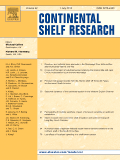
CONTINENTAL SHELF RESEARCH
Pioneering Research at the Edge of the SeaCONTINENTAL SHELF RESEARCH, published by PERGAMON-ELSEVIER SCIENCE LTD, is an esteemed journal within the fields of Aquatic Science, Geology, and Oceanography, reflecting a compelling intersection of these disciplines. Since its inception in 1982, this journal has served as a premier platform for disseminating cutting-edge research relevant to the continental shelf ecosystem, including its geological features, biological resources, and physical processes. With a Category Quartile ranking of Q1 in Aquatic Science and prominent Q2 standings in Geology and Oceanography, it is recognized for its rigorous peer-review standards and impactful contributions, evidenced by its respective rankings in Scopus. Researchers and professionals are encouraged to engage with the journal's array of high-quality articles that not only enhance scientific understanding but also inform policy and conservation efforts. This dedication to advancing knowledge makes CONTINENTAL SHELF RESEARCH an essential resource for those passionate about marine and coastal studies in the United Kingdom and globally.
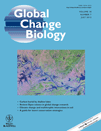
GLOBAL CHANGE BIOLOGY
Advancing Insights into Ecological TransformationsGLOBAL CHANGE BIOLOGY, published by Wiley, is a leading journal dedicated to advancing the scientific understanding of the relationships between biological systems and global environmental changes. With an impressive impact factor placing it in the Q1 category across multiple disciplines—including Ecology, Environmental Chemistry, and Global and Planetary Change—this journal is essential for researchers, professionals, and students aiming to stay at the forefront of this dynamic field. The journal has a rich history since its inception in 1995, continually providing a platform for high-quality research that informs policy and management practices worldwide. Although it is not open access, the journal remains a valuable resource for those committed to exploring the complexities of ecological and environmental change. With a Scopus ranking of #3 in Global and Planetary Change and #6 in both Ecology and Environmental Chemistry, GLOBAL CHANGE BIOLOGY continues to shape the dialogue on the pressing environmental challenges of our time.

Marine Pollution Bulletin
Exploring the depths of marine pollution research.Marine Pollution Bulletin is a premier interdisciplinary journal dedicated to publishing innovative research and critical reviews focused on the impact of human activities on marine ecosystems. Published by PERGAMON-ELSEVIER SCIENCE LTD, this journal is renowned for its rigorous peer-review process and holds a prestigious position in the academic community, with a 2023 Q1 ranking in Aquatic Science, Oceanography, and Pollution. With a history spanning from 1970 to 2024, it provides a vital platform for researchers, professionals, and students alike to share groundbreaking findings in marine environmental science. The journal, based in the United Kingdom at The Boulevard, Langford Lane, Kidlington, Oxford OX5 1GB, England, is indexed in Scopus and ranks impressively in various categories, underscoring its significance in advancing the understanding of marine pollutants and their ecological consequences. Submissions are encouraged for original research, review articles, and case studies that contribute to this critical field, enabling the academic community to explore solutions for mitigating marine pollution.